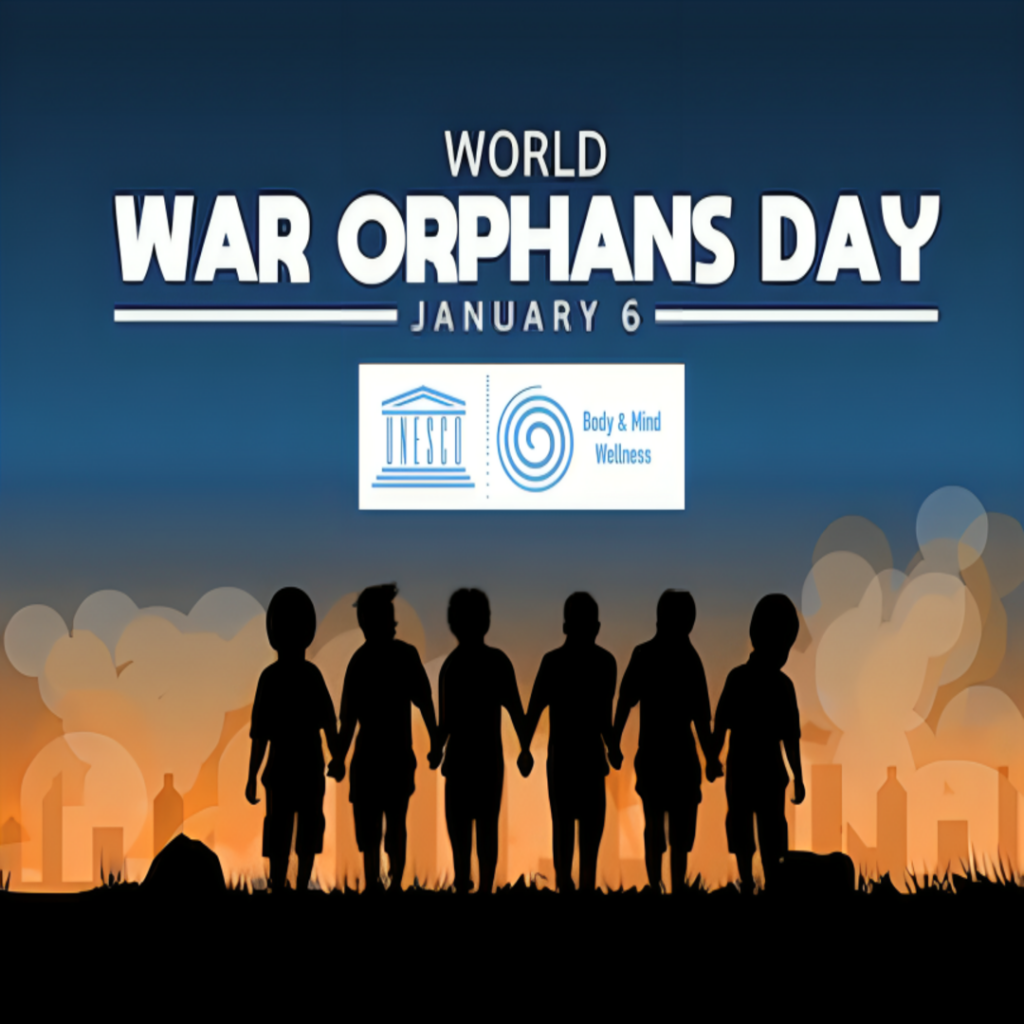
The Origin
World Day for War Orphans, observed annually on January 6, was established to raise awareness about the struggles faced by children orphaned due to wars and conflicts. While the exact origin is not widely documented, the day highlights the impact of war on the most vulnerable populations—children—drawing attention to their need for care, education, and protection. It emphasizes global efforts to ensure these children are not forgotten.
Importance
War orphans face immense challenges, including loss of family, emotional trauma, poverty, and lack of access to basic needs like education and healthcare. This day serves as a reminder of their plight and the need to advocate for their rights and well-being. By addressing their struggles, we contribute to breaking the cycle of poverty, conflict, and instability that perpetuates their suffering.
Why do we celebrate?
The day encourages individuals, organizations, and governments to take collective action to support war orphans. It serves as a platform to recognize their resilience and the urgent need for humanitarian assistance, psychological support, and educational opportunities. Observing this day reinforces the global commitment to ensuring that no child is left behind, regardless of their circumstances.
UNESCO BMW’s Involvement:
World Day for War Orphans on January 6 serves as a poignant reminder of the countless children impacted by conflict. For UNESCO BMW, this day aligns with its mission to promote education, peace, and social equity. The organization works tirelessly to address the challenges faced by war orphans, ensuring they receive the care, protection, and opportunities necessary to rebuild their lives.
UNESCO BMW’s Vision:
At the heart of UNESCO BMW’s vision is a world where no child is left behind. By championing the rights of war orphans and ensuring they have access to education and care, UNESCO BMW aims to create a global community rooted in compassion and equality. This day is a call to action to support those who have lost the most and to foster hope for a brighter, peaceful future.
By:- Jeyadev Needhi